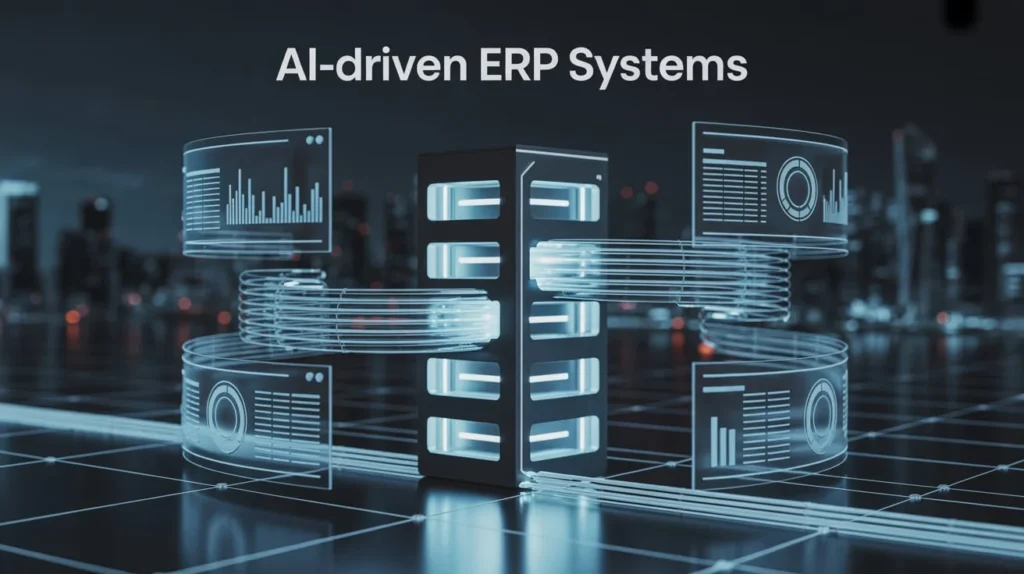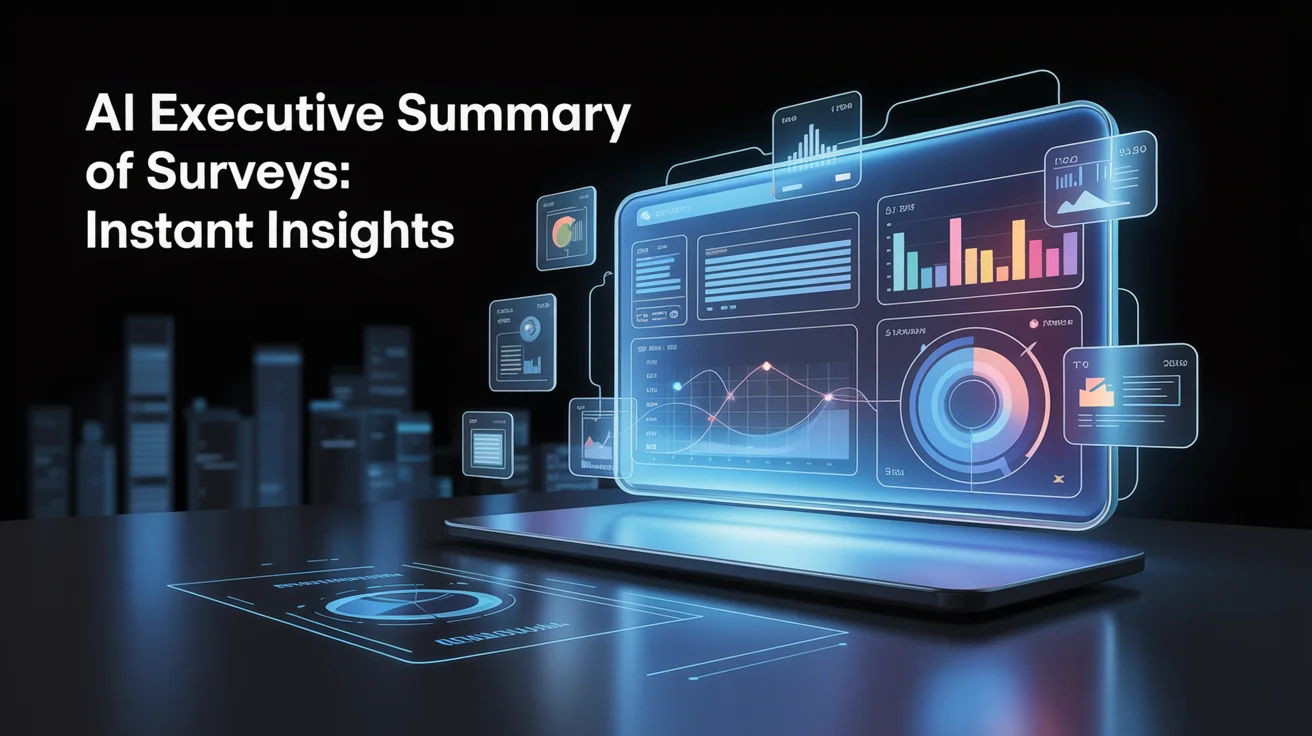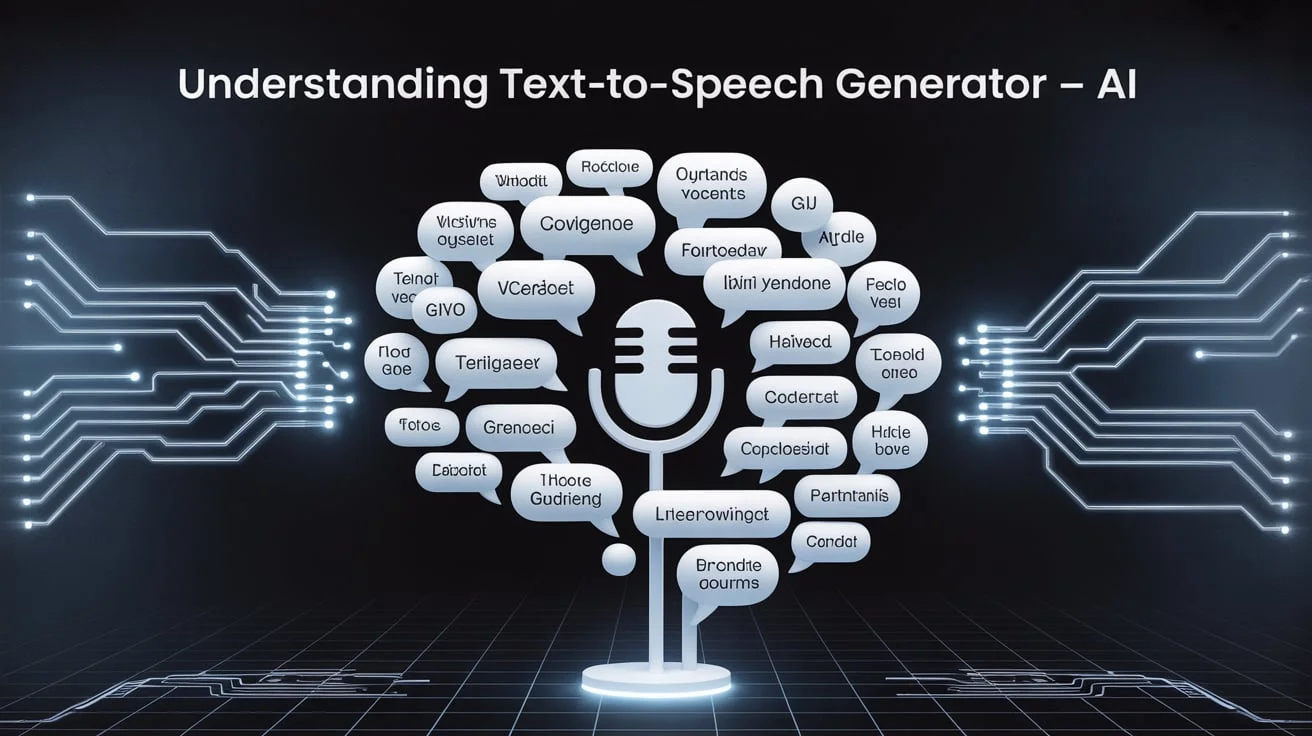In today’s fast-paced business world, companies need more innovative and more efficient ways to manage operations. This is where AI-driven ERP systems come into play.
These advanced systems use artificial intelligence to revolutionize enterprise resource planning (ERP), helping businesses make faster, data-backed decisions.
The integration of AI into ERP software is transforming traditional systems into intelligent platforms that enhance productivity and agility.
Understanding AI-Driven ERP Systems
AI-powered ERP solutions combine two powerful technologies: artificial intelligence and enterprise resource planning software. Traditional ERP software helps businesses manage core functions, such as inventory, finance, HR, and supply chain, in an integrated manner.
When AI is integrated into ERP, it enhances automation, predictive analytics, and intelligent decision-making.
These systems can analyze vast data sets, identify patterns, and suggest actions, making the ERP more proactive rather than reactive. For example, AI can forecast demand, optimize inventory, and automate routine tasks.
Key Features :
- Predictive Analytics: Anticipates market trends and customer demand.
- Automation: Reduces manual work by automating repetitive tasks.
- Natural Language Processing: Allows users to interact with ERP through voice or chat.
- Machine Learning: Continuously improves decision-making based on data patterns.
- Real-Time Insights: Provides up-to-date information to support timely decisions.
It’s not only increase efficiency but also offer businesses competitive advantages by enabling more innovative, data-driven strategies.
Benefits of AI-powered solutions for Businesses
Businesses that adopt AI-powered solutions experience transformative benefits that touch almost every part of their operations. These systems enhance accuracy, speed, and efficiency, helping organizations to streamline processes and gain a competitive edge. Let’s explore the key benefits in more detail.
Improved Decision Making
AI-driven ERP systems analyze vast amounts of data quickly, helping businesses gain clear insights into operations and customer behaviour. This enables leaders to make faster and more informed decisions. Real-time data ensures actions are timely and accurate.
Increased Operational Efficiency
AI automates routine tasks, such as invoicing, inventory tracking, and scheduling, thereby reducing manual work and errors. This lets employees focus on strategic activities that add more value. Processes become faster and more consistent.
Enhanced Customer Experience
AI-powered ERP predicts customer needs and personalizes services, improving satisfaction. It enables timely communication and tailored offers. This builds stronger customer loyalty and drives sales growth.
Cost Savings
By optimizing resources and reducing errors, AI-powered solutions cut operational costs. Automation lowers labour expenses, and better forecasting minimizes waste. Early issue detection also reduces repair and downtime costs.
How AI Enhances Core ERP Modules

The integration of AI brings specific advantages to each ERP module. It streamlines processes, boosts accuracy, and enables real-time intelligent decision-making. Every department benefits differently.
Finance and Accounting
AI automates daily tasks, such as bookkeeping and expense tracking, reducing human error and saving time. It helps detect unusual transactions quickly, improving financial security. Predictive tools also support better cash flow management.
Supply Chain Management
AI enhances demand forecasting, enabling businesses to maintain optimal stock levels at the right time. It enhances delivery planning by analyzing traffic and route patterns. Supplier performance is also monitored to ensure quality partnerships.
Human Resource Management
AI streamlines hiring by screening resumes and matching candidates to roles more efficiently. It also predicts employee turnover and improves workforce planning. HR teams gain valuable insights into performance trends and training needs.
Customer Relationship Management (CRM)
AI analyzes customer behaviour to personalize marketing and improve engagement. It helps sales teams by predicting customer needs and recommending actions. This leads to stronger relationships and better customer satisfaction.
AI-Driven ERP in Human Resources and Sales
Artificial intelligence-driven ERP systems are revolutionizing both human resources and sales departments by automating tasks, analyzing data, and improving decision-making. In HR, these systems streamline recruitment, payroll, and performance management.
In sales, they help identify trends, optimize customer interactions, and boost conversions.
Key Features
- Bright Recruitment: AI filters resumes, analyzes candidate behaviour, and predicts job fit for faster and more accurate hiring.
- Automated Payroll: Payroll processing becomes faster and error-free with AI-based validation and compliance checks.
- Performance Tracking: Real-time analytics help HR evaluate employee performance and suggest personalized development plans.
- Sales Forecasting: AI analyzes historical data and market trends to predict future sales performance accurately.
- Lead Scoring: AI assigns value to leads based on behaviour and demographics, helping sales teams prioritize efforts.
- Customer Insights: ERP systems with AI identify buying patterns and recommend upselling or cross-selling opportunities.
Challenges and Considerations
Deploying AI-driven ERP systems involves managing vast amounts of data from multiple departments. If the data is outdated, inconsistent, or siloed, it can affect the accuracy of AI insights. Proper data integration, cleansing, and management are crucial for the effective implementation of any system.
Another key consideration is the cost of adoption. While AI improves efficiency long-term, initial investments in infrastructure, software customization, and training can be high. Small and medium-sized businesses may struggle to allocate the necessary resources.
Security and compliance are also critical concerns. As AI accesses sensitive employee and customer data, protecting this information is vital. ERP systems must comply with industry regulations, such as GDPR, and incorporate advanced cybersecurity measures to prevent breaches.
Future Trends in AI-powered ERP solutions
The future of AI-powered ERP solutions lies in greater automation and more intelligent workflows. AI will integrate more deeply with robotic process automation, reducing manual tasks and boosting efficiency across all business functions. Companies will benefit from faster, error-free operations.
Additionally, AI-powered analytics will provide stronger predictive insights, enabling businesses to make more proactive decisions. Improved natural language processing will simplify user interaction with ERP, making it more accessible and intuitive.
Custom AI solutions tailored to various industries will also become increasingly common.
Conclusion:
AI-driven ERP systems are revolutionizing how businesses operate by enhancing intelligence, automation, and insights across all departments. While challenges exist, the benefits far outweigh the risks, making these systems a valuable investment for companies seeking growth and efficiency.
Businesses ready to adopt AI-driven ERP should focus on data quality, security, and employee training to maximize success. As AI technologies continue to advance, their impact on ERP will only grow stronger, making it an increasingly essential tool for modern enterprises.
Frequently Asked Questions:
Q1: What is an AI-driven ERP system?
An AI-driven ERP system integrates artificial intelligence technologies into traditional enterprise resource planning software to enhance automation, data analysis, and decision-making capabilities.
Q2: How does AI improve ERP system performance?
AI enhances ERP systems by automating routine tasks, providing predictive analytics, personalizing user experiences, and enabling real-time decision-making.
Q3: Are AI Smart ERP systems suitable for small businesses?
Yes, AI Smart ERP systems can be scaled to fit businesses of all sizes, offering small businesses improved efficiency and competitiveness.
Q4: What industries benefit most from Intelligent automation software?
Industries such as manufacturing, retail, healthcare, and finance can significantly benefit from the enhanced capabilities of Intelligent automation software.
Q5: What are the initial steps to implement an AI-driven ERP system?
Begin by assessing your business needs, ensuring data quality, selecting a suitable ERP provider with AI capabilities, and planning for change management and training.




